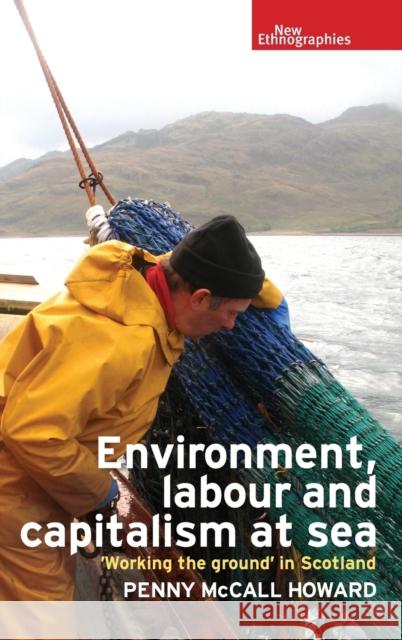Environment, Labour and Capitalism at Sea: 'Working the Ground' in Scotland » książka
Environment, Labour and Capitalism at Sea: 'Working the Ground' in Scotland
ISBN-13: 9781784994143 / Angielski / Twarda / 2017 / 248 str.
Environment, Labour and Capitalism at Sea: 'Working the Ground' in Scotland
ISBN-13: 9781784994143 / Angielski / Twarda / 2017 / 248 str.
(netto: 413,10 VAT: 5%)
Najniższa cena z 30 dni: 431,97
ok. 30 dni roboczych
Bez gwarancji dostawy przed świętami
Darmowa dostawa!
How do fishers extend their bodies and senses to work beneath the surface of the sea in places they cannot see, have never been, and could not survive in? And at what risk? This book explores how fishers make the sea productive through their labour, using technologies ranging from wooden boats to digital GPS plotters to create familiar places in a seemingly hostile environment. It shows how their lives are deeply affected by capitalist forces in the markets they sell to. These forces shape even the relations between fishers on the same boat. They frequently make impossible choices between safe seamanship and staying afloat economically, and the book describes the human impact of the high rate of deaths in the fishing industry. The author has carried out years of participant observation at sea in the west of Scotland; working on a trawler, living on a boat in harbours and voyaging along the coast.
The book makes a unique contribution to understanding human-environment relations, examining the places fishers create and name at sea, as well as their technologies and navigation practices. Combining phenomenology and political economy it offers new approaches for analyses of human-environment relations and technologies. It contributes to the social studies of fisheries through an analysis of how deeply fishing practices and social relations are shaped by political economy.
Environment, labour and capitalism at sea will be read by social scientists and anthropologists and also by those with an interest in maritime life.











